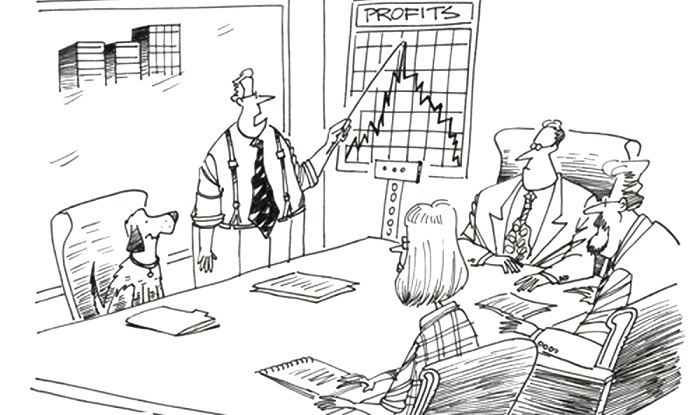
7 Smarter steps in becoming a high performing salesperson in 2017
As we approach the end of 2016, many salespeople are in the process of preparing business plans for 2017. For majority of salespeople, I believe your goals for the coming year would include achieving and/or exceeding your sales quota in order to earn as much commissions/bonuses as possible.
Here are seven S.M.A.R.T.E.R steps you would like to consider in ensuring that your desired income as a sales professional in the coming year is achieved sustainably.
1. Specific goals:
As a salesperson, you must be specific when defining your goals and about what you want to achieve. If those goals are general, you are less likely to get to your final destination. Specific goals results in specific, focused actions whereas in contrast, vague goals results in vague actions. Ad hoc ways of doing things lead to random results. “Specific” therefore means setting quantifiable goals and deadlines linked to them.
For instance, saying “I want to increase my sales in the coming year” is not specific; rather choose real numbers that you can work towards. A good example of a specific goal will be: “By the end of 12 months, I would have sold GH¢5,000,000 worth of product “X” to both existing and new customers. Based on that my quarterly sales target is GH¢1,250,000.” As Zig Ziglar said, “You can’t hit a target you can’t see.” Write down you goals clear and track them monthly, quarterly and yearly to ensure you’re on track.
2. Metrics:
It is a method of measuring something, or the results obtained from this. In simple terms, metrics helps in measuring your progress against what you want to accomplish in the year. From the above ‘specific’, you can define a number of metrics as a guide in meeting the stated sales goal. Examples of metrics you should be tracking as sales professionals includes:
• The number of leads target per month, and how many of them you qualify within a week.
• The number of new prospects per month and how many of them you close within three weeks, as well as how many of those prospects you need to meet your target
• The number of quarterly sales to achieve in order to meet the target.
• The cumulative sales with a specific target per quarter
• Your closing ratios and average order values
• Your win/loss activities
3: Attainable/Action Plan:
A salesperson should set attainable targets and as they say “not to shoot for the moon knowing very well that the moon is farther than they could ever reach”. As a salesperson, your goals must be challenging so that so that you’ll push yourself to achieve it, but not something that is unachievable. Such a goal will set you up for failure. On the other hand, salespeople should avoid setting targets which are so low that it fails to inspire them to success.
It is not enough to set attainable goals, but in addition every salesperson must document the actions that define how they plan to achieve their goal. It is therefore important to prioritise your actions so that more time and resources are allocated to the most important activities first. For example, you might want to prioritize established customers as your first priority because of the amount of repeat business you will get from them to grow. Your next priority may be prospects who have been referred to you by your established and happy customers.
4. Realistic:
Salespeople should be realistic about the goals that they set which can be achieved. For instance, setting a sales target of GH¢50m a year when you don’t have the resources to achieve that, and second, where your previous annual sales achieved averages GH¢5m in the last two years is a recipe for disaster.Just like any other assignment you set out to do, you want to make sure you’re capable of executing it.Having said that, salespeople are encouraged to set BIG GOALS in situations where they believe that with the right effort and right set of circumstances, their goals could be met. Zig Ziglar reminds us, “If you can believe it, you can achieve it.”
5. Time-bound:
I don’t know about you, but personally deadlines are a big motivator for me and the same may apply to many salespeople. As they say, “a date grounds your goal in reality, and you can look forward to when you will receive the reward that it provides.” For salespeople, each of their goals should have a concrete timeline that they can work towards. However, a word of advice, don't keep changing deadlines for your goals. Just keep to the original one laid down and rather do an assessment of why you were able to achieve or not achieve it.
6. Ethical:
In what is known as the “Post-trust” era, ethical issues such as integrity, honesty, truthfulness and values have become very important in selling.Many buyers no longer trust businesses and sales organisations. Buyers are looking out for trusted salespeople to partner in achieving their goals. The fact is that sales professionals may sell unethically to a certain point, but statistics is there to prove that those who sell ethically in the long-term because very successful in their careers and financially.So my question is, are you going to achieve your goals for this year in an ethical or unethical way? Your goals for the year meet very high ethical standard.
7. Resourced:
Salespeople must understand that goals cannot be achieved without adequate resources committed. This may include sales managers, money, time, mentors, coaches, information sources or support from friends and colleagues. To an extent, to achieve some sales goals may require you to make some sacrifices, such as long days away from the family, staying out late to network, investing some of your leisure time to learn and perfect the art of selling.
Happy Selling!